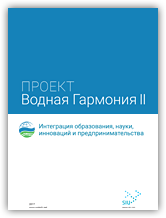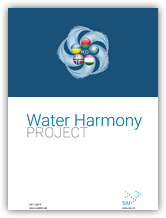The project is organized in such a way that a large number of teaching staff (over 40), students (over 100) and resource persons (over 30) from public and private organizations will be physically meeting each other at the universities of the consortia.
Planed 15 activities are covering most of the objectives in the Eurasia Call to various degrees. The project activities are carried out through 8 project meetings, short and long term student mobility programs to Norway, involvement of external partners through workshops and student mobility placements and between partners as well as divided work carried out at partner universities.
Planned activities should bring following results:
- Eight project meetings with 20-30 participants representing 10 universities in Dnepropetrovsk, Shymkent, Kiev, Oslo, Dushanbe, Khojand, Bishkek, Minsk, Cherkassy, Chisinau (Three meetings are combined for rational use of resources).
- 10 one-day workshops open for external partners and students in 10 cities, back-to-back with project meetings.
- Four batches of 20 master students with three weeks intensive courses in NMBU
- 11 master students from Ukraine in Norway for one year research fellowships (funded with Erasmus+)
- Six master students from Norway to Ukraine for five months for research fellowship evaluating project results, (funded with Erasmus+)
- Six staff members from Ukraine to Norway and six from Norway to Ukraine for one week training courses (funded with Erasmus+)
- One textbook on water management & treatment produced, translated into seven languages and distributed to at least 1000 recipients. The textbook will be the expanded version of the textbook produced under the phase-I, to include (among others) biological treatment methods.
- Handbooks/Guidelines on graduate supervision, entrepreneurship/innovation produced, translated and printed.
- One special edition of indexed international scientific journal and one research paper collection with at least 50 publications (alternatively at least 20 publications in Scopus/Web-of-Science citations) will be produced and distributed.
- Five joint online courses (e-learning) to be developed and utilized by partners
- At least five online lectures from Norway carried out.
- At least 20 student placements and 20 student research collaborations with industrial partners
- At least 10 dialogue meetings with future employers in all seven countries to improve curricula
- At least five job-fairs /career days held
- At least 10 master/PhD students graduate with double diplomas
- At least three workshops on entrepreneurship carried out
- At least 50% participation of females in all student mobility programs
- 9 laboratories are upgraded to cater courses developed in the project (including three with Erasmus+ funds).
- A joint university agreement on research and educational agreement among all 10 partners will be signed.
- At least three collaborative research proposals submitted for external international funding.
Long-term results:
- A strengthened and sustainable scientific and educational network with harmonized visions and attitudes
- Teaching programs are adopted to the needs of the society and the labor market.
- Entrepreneurship and innovative culture institutionalized among the partners’ strategic development traditions
- Graduates are more adopted to the labor market needs and streamlined towards an efficient employment process.
- Establishment of a sustainable trust and mutual respect among the universities and public-private partnerships through dialogues, meetings and motilities.
- Five online courses with self-financing mechanism launched to ensure the quality and services continue beyond the project period.
- More internationally oriented teaching staff and students via continuous and repeated exposure.
- Establishment of a “Water Harmony Alumni Association” for sharing of, and contribution to, the continuous development of the cause of the Water Harmony initiative. Use of modern social networking (Facebook, LinkedIn, etc) to promote this endeavour.



